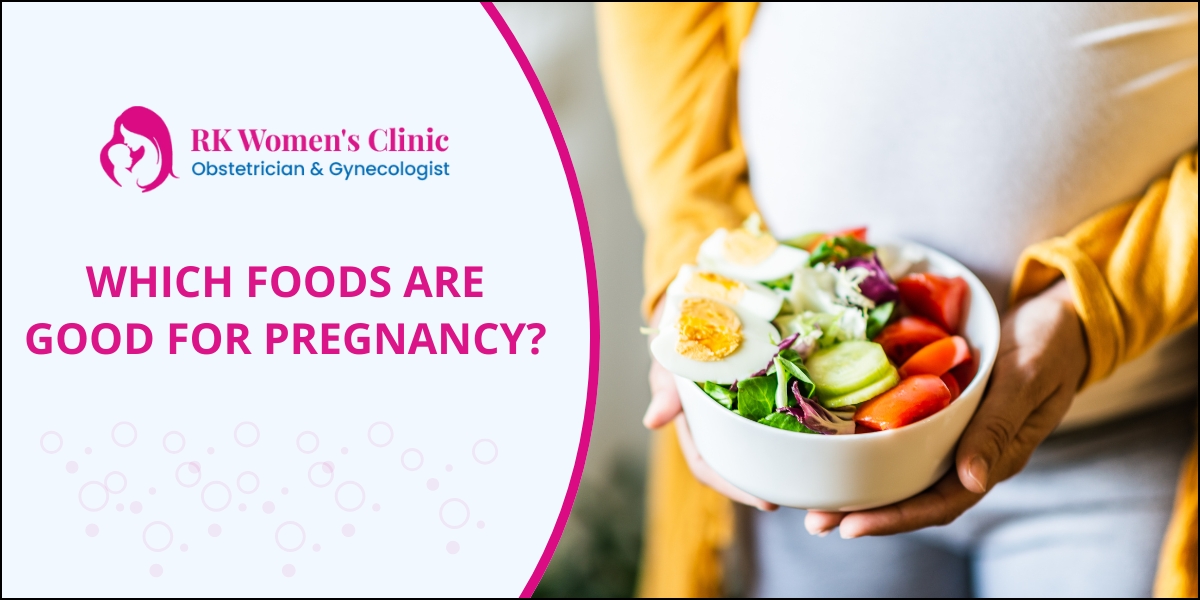Pregnancy is a crucial time when a woman’s body requires extra nutrients to support the growing baby. Eating a well-balanced diet ensures the health of both the mother and the developing fetus.
Why Is Nutrition Important During Pregnancy?
A pregnant woman’s body undergoes significant changes, requiring additional vitamins, minerals, and macronutrients. Proper nutrition helps in:
- Supporting fetal growth and development
- Reducing the risk of birth defects
- Maintaining the mother’s energy levels
- Preventing pregnancy complications like anemia and gestational diabetes
Top Foods to Eat During Pregnancy
1. Dairy Products (Milk, Yogurt, Cheese)
Dairy is an excellent source of calcium, protein, and vitamin D, which are essential for the baby’s bone development. Greek yogurt, in particular, provides probiotics that support gut health.
2. Lean Proteins (Eggs, Chicken, Fish, Lentils)
Proteins are the building blocks of cells. Eggs contain choline, which aids brain development, while fish like salmon provides omega-3 fatty acids crucial for the baby’s eyes and brain. However, avoid high-mercury fish like shark and swordfish.
3. Whole Grains (Oats, Quinoa, Brown Rice)
Whole grains are rich in fiber, B vitamins, and iron, helping with digestion and preventing constipation—a common issue during pregnancy.
4. Leafy Greens (Spinach, Kale, Broccoli)
Packed with folate, iron, and calcium, leafy greens help prevent neural tube defects and support red blood cell production.
5. Fruits (Bananas, Oranges, Berries, Avocados)
- Bananas provide potassium and help with muscle cramps.
- Oranges are high in vitamin C, boosting immunity.
- Berries contain antioxidants and fiber.
- Avocados offer healthy fats and folate.
6. Nuts and Seeds (Almonds, Walnuts, Chia Seeds, Flaxseeds)
These are great sources of healthy fats, magnesium, and omega-3s, which support the baby’s brain development.
7. Legumes (Lentils, Chickpeas, Beans)
Legumes are high in folate, iron, and plant-based protein, making them ideal for vegetarian mothers.
8. Lean Red Meat (For Iron and Vitamin B12)
Iron deficiency is common in pregnancy, and lean red meat helps prevent anemia by boosting hemoglobin levels.
9. Water and Hydration
Staying hydrated prevents headaches, UTIs, and preterm labor. Aim for 8-10 glasses of water daily.
Foods to Avoid During Pregnancy
While many foods are beneficial, some can be harmful:
- Raw or undercooked meat and eggs (risk of bacteria)
- High-mercury fish (shark, swordfish)
- Unpasteurized dairy and juices (risk of listeria)
- Excess caffeine (limit to 200mg/day)
- Alcohol (strictly avoid)
- Excess caffeine (limit to 200mg/day)
Pregnancy Superfoods for Each Trimester
First Trimester (Weeks 1-12): Focus on Folate & Iron
- Spinach, lentils, fortified cereals (folate)
- Lean meats, beans (iron)
Second Trimester (Weeks 13-27): Calcium & Omega-3s
- Dairy products, almonds (calcium)
- Salmon, walnuts (omega-3s)
Third Trimester (Weeks 28-40): Fiber & Protein
- Whole grains, fruits (fiber)
- Eggs, lean meats (protein)
A nutritious diet during pregnancy ensures the well-being of both mother and baby. Incorporate a variety of whole foods, stay hydrated, and avoid harmful substances. Always consult your doctor before making major dietary changes.
For expert guidance on pregnancy nutrition and prenatal care, consult Dr. Akula Ramya Krishna, the best gynecologist in Kasarvadavali. With years of experience in maternal health, she provides personalized care to ensure a safe and healthy pregnancy journey.





